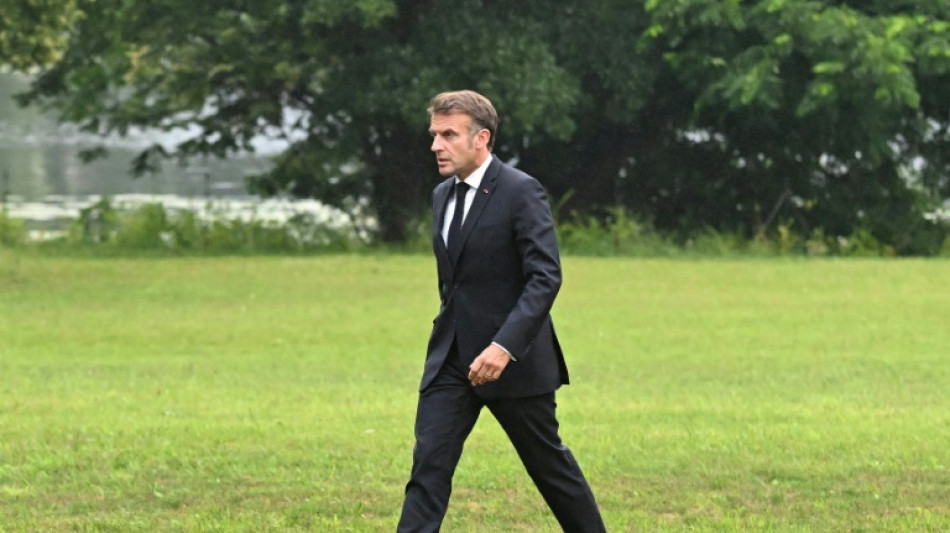
JRI
0.1800

President Emmanuel Macron urged a tougher line from Paris in an intensifying standoff with former north African colony Algeria, saying France's stance needed to "command respect".
Tensions have grown in recent months to new levels between Paris and Algiers, with Macron's hopes of the historic post-colonial reconciliation that he espoused at the start of his presidency now appearing a distant dream.
Algeria is holding in prison French-Algerian writer Boualem Sansal and also the prominent French football journalist Christophe Gleizes, while Paris has accused pro-Algiers influencers of inciting hatred inside France.
"France must be strong and command respect," Macron said in a letter to Prime Minister Francois Bayrou published by the daily newspaper Le Figaro online late Wednesday and in its print edition Thursday.
"It can only obtain this from its partners if it itself shows them the respect it demands. This basic rule also applies to Algeria," he writes.
Among the measures requested from the government, Macron called for the "formal" suspension of the 2013 agreement with Algiers "concerning visa exemptions for official and diplomatic passports."
Macron also asked the government to "immediately" use a provision in a 2024 immigration law, which allows the refusal of short-stay visas to holders of service and diplomatic passports, as well as long-stay visas to all types of applicants.
To prevent Algerian diplomats from being able to travel to France via a third country, France will ask its EU partners in the Schengen free travel space to cooperate.
Macron pointed in the letter to the cases of Sansal, sentenced to five years in prison for "undermining national unity," and Gleizes, sentenced to seven years in prison in Algeria for "apology for terrorism."
Supporters of both men say they are entirely innocent and victims of the current political tensions.
But Macron insisted that his "objective remains to restore effective and ambitious relations with Algeria."
Macron angered Algiers in July 2024 when he backed Moroccan sovereignty over the disputed Western Sahara, where Algeria supports the pro-independence Polisario Front.
Meanwhile, atrocities committed by both sides during the 1954-1962 Algerian war of independence have long strained relations -- even half a century later.
Upping tensions further, Algerian consulates in France have suspended cooperation with French government services on returning Algerians deemed dangerous back to Algeria after being ordered to leave by Paris.
The French government fears that it will have to release Algerian nationals currently detained in detention centres due to the inability to keep them there indefinitely.
jmt-bpa-Dt-sjw/jh/giv
E.Cerny--TPP